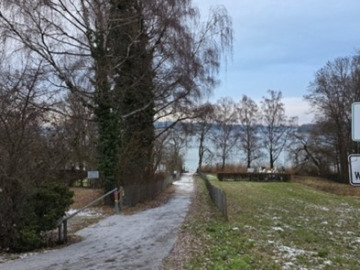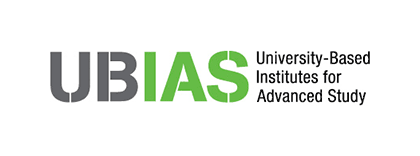WIAS Visiting Researcher Seminar:
Professor VELONAKI, Mari<br />Seminar Series on Interdisciplinary research on Social Robotics, Arts, and Design (3/6・3/7・3/27)
Speaker
VELONAKI, Mari (Professor, University of New South Wales , Australia)
Language
English
Prospected Audience
Undergraduate, Graduate, Researchers, Faculty members, general audience
Organizer
The Department of Intermedia Art and Science, Katsumi Watanabe Lab
Co-Organizer
Waseda Institute for Advanced Studies (WIAS)
Registration
Please register from here or the link below for participation.
Seminar 1: Creative Robotics Lab and National Facility for Human-Robot Interaction Research: Introduction, Research Priorities, Approach and Current Projects
Outline
The National Facility for Human-Robot Interaction Research is a collaborative partnership between Art & Design, School of Computer Science and Engineering and School of Psychology, at the University of New South Wales (UNSW); Australian Centre for Field Robotics and School of Information Technologies at the University of Sydney; UTS Centre for Autonomous Systems; and Department of Rehabilitation Medicine at St Vincent’s Hospital. The Facility was funded by an Australian Research Council Linkage Infrastructure, Equipment and Facilities grant, together with contributions from the partners. I will introduce how the facility works and invite possible collaborations.
Date & Time
March 6, 2025(Thu) 13:00~15:00
Venue
Building#59 4F Room#407, Nishiwaseda Campus, Waseda University
Seminar 2: The Power of Fragility: Elements of Trust, Empathy and Engagement in Human-Robot Interaction
Outline
Designing robots creatively involves not only the conceptualisation and realisation of robots that can interact with humans, but demands a focus on the experience of people as they encounter and interact with the robot. This focus on interactant experience requires an understanding of the context of the interaction and the culture within which it will take place, underscoring the importance of the social sciences and creative arts to social robotics; disciplines that have a long history of studying people and their relationships to the spaces that they inhabit. Four case studies of collaborative art-robotics projects are presented to illustrate the process of designing robots creatively, with strong emphasis on creating an engaging experience for people as they interact with the robot. The title of this talk signifies the process of conceptualising and realising a robotic system that is able to create a unique and engaging experience for the interactant. The conception and design of an interactive robot will therefore include the design of the robot’s appearance and behaviour, and the overall interaction design that includes the environment and situational awareness. In designing these aspects it is important to understand and account for the context of the interaction and the culture within which it will take place. In order to create an experience in human-robot interaction, the realisation of the conceptual, behavioural, aesthetic and interactive elements of the design must be technologically executed in an equally innovative, efficient and effective manner that facilitates an experimental interaction between a person and the robot.
Date & Time
March 7, 2025(Fri) 14:00~18:00
Venue
Building#59 4F Room#407, Nishiwaseda Campus, Waseda University
Seminar 3: Designing robots creatively: Experiential design as a key driver to an engaging human robot interaction
Outline
As the field of Social Robotics rapidly grows there is a need to reconsider robot aesthetics, behaviour, learning and adaptability to varying social contexts in order to improve fluency, effectiveness and human interest during long term interaction with a robot. There is also a pressing need for a more informed multi-disciplinary approach in the design, development and evaluation of these systems. Velonaki’s presentation will focus on experiential human robot interaction as a key function and a driver for developing social robots. In order to be effective in social contexts, robots ultimately need the ability to ‘understand’ human behaviours and social settings to integrate in a fluid and non-intrusive manner. An important next step is to model social environments for a wider range of interactions with a robot —interactions that trigger a greater variety of behavioural patterns, rather than mere task performance. Furthermore, Velonaki will argue that is imperative that our encounters with social robots must be continually engaging and valued in order to maintain our long term interest and attention.
Date & Time
March 27, 2025(Wed) 13:00~14:30
*Please notice the date has changed from March 26.
Venue
Building#59 4F Room#407, Nishiwaseda Campus, Waseda University










